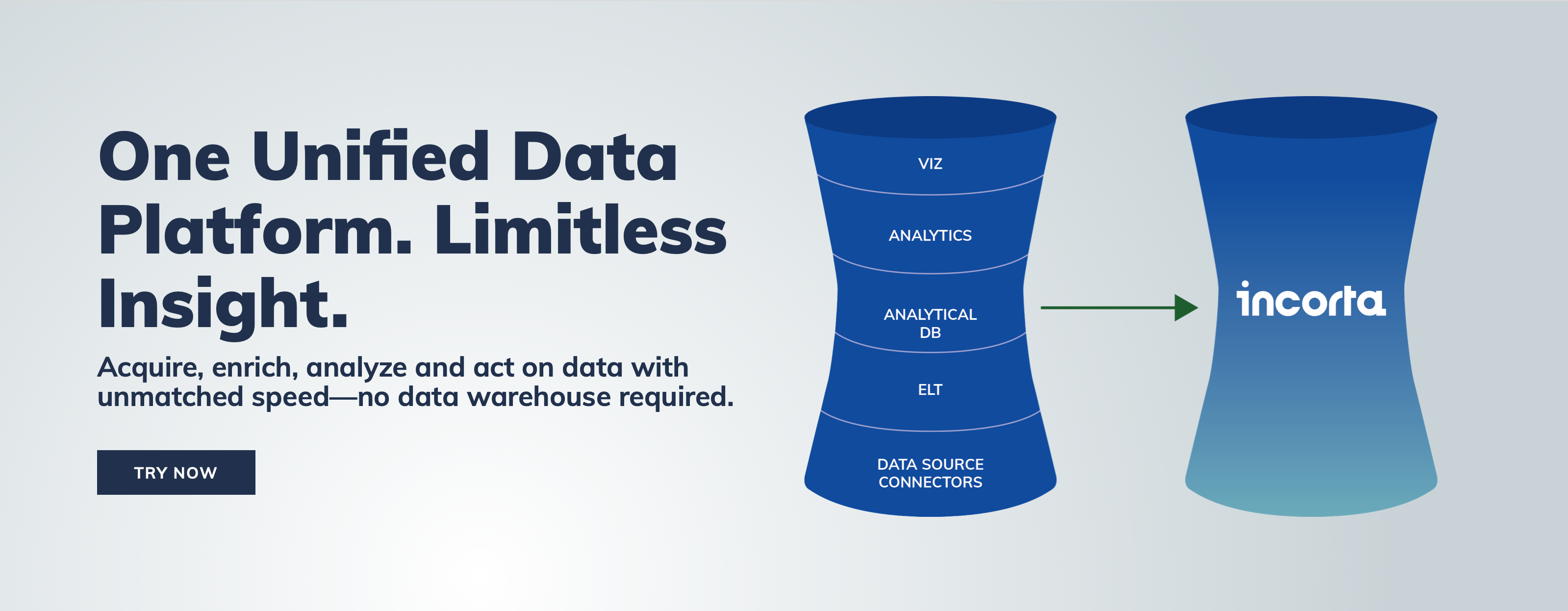
The amount of data retailers have and the way we use data has changed over the past decade. We’ve become much more dependent on data. That means our approach to data governance has to change as well.
 We’ve all been in meetings where everybody walks in with a different sales number. Maybe one person is including gift cards in sales, or deducting returns, and another isn’t. One is pulling their data from the POS and the other one from the ERP. When that happens, the conversation is about data quality, instead of about how to utilize the data to make decisions. This kind of conversation happens again and again when you don’t have a strong data governance team or process in place. In order to be successful, data governance should be at the core of your strategy.
We’ve all been in meetings where everybody walks in with a different sales number. Maybe one person is including gift cards in sales, or deducting returns, and another isn’t. One is pulling their data from the POS and the other one from the ERP. When that happens, the conversation is about data quality, instead of about how to utilize the data to make decisions. This kind of conversation happens again and again when you don’t have a strong data governance team or process in place. In order to be successful, data governance should be at the core of your strategy.
The high-level goal of data governance has not changed: Give the business access to data they can trust. Neither have the fundamental principles: collect the right data; make sure the data is usable; and ensure that it is properly catalogued and managed to maintain data integrity. But leaders have to adjust to changes in their business in order to handle the volume, velocity and variety of data available today.
Reporting vs. Decision Making
A decade ago, data governance seemed to be mostly handled in the finance organization, where it was mission critical to be able to deliver accurate reports and statements of financial results. Of course that’s still highly important, but that kind of reporting is the endpoint.
The focus now is on data for decision making. We have so much more data coming in from internal and external sources, from marketing and operations – traffic on your website; conversion rates on every channel, for every campaign and marketing event, inventory in-stocks, customer data, shopping behavior, etc. There are so many more customer connection points we have access to. So many metrics are available, and there are so many decision points before the sale occurs. You have to be able connect those data points together and get consistency and agreement across the organization, long before financial reporting and analysis occurs.
Too Many Cooks
This explosion of data and data sources makes data governance much more complex at a time when the business is demanding faster access to trusted data. One of the key challenges is that retailers want to have many different business owners involved in data governance. That’s great – they should be involved. There should be a lot of conversations about what data is driving decisions today, and what’s missing today and for the future. Functional team leaders should be transparent about where they’re getting additional data and look to see how that can be shared across the organization.
But if you have marketing and merchandising and operations and distribution and finance managing master data on their own, not only do you have duplication of effort, you end up with data that is inconsistent, incomplete, or inaccurate. That is not the way you want to be managing data that hundreds of people are going to be accessing. This could cost the organization hundreds of thousands, or even millions of dollars over time.
Rallying the Troops
You need one person leading this – somebody who’s going to rally the troops, facilitate these conversations and get alignment across the business. Depending on the size of your organization, this person potentially could be dedicated full time to data governance, but it doesn’t necessarily have to be a chief data officer. It could be a data analyst or data manager reporting to the CIO or a COO. It should be someone who knows the business and can communicate well across the organization, and ultimately put definitions and processes in place.
This is particularly important in large global organizations where different systems and currencies are being used and you’re trying to merge lots of data, or you’re pulling data together from a merger or acquisition. There’s typically a lot of inconsistency and misalignment in those situations, and you need a true, assigned data leader in your organization managing this.
The data leader should be just as focused on collecting the right data as on eliminating unnecessary data and getting rid of noise. Even though there’s all this data available, it’s not always additive. If data is not useful in managing your business, maybe that’s something you don’t need to include.
No More “Grab and Go”
If we’re going to be more strategic with data, instead of just quickly pulling the information from your departmental systems and throwing it into a big pivot table, everyone has to think about the larger goal, and to make that happen there has to be a standard bearer to optimize your company’s data and insights.
Good data governance takes a lot of time and effort, but when everyone has access to the right, governed data it ends up saving everyone a lot of time. More importantly, it changes the conversation from questioning the data to finding ways to drive bottom line profitability and overall customer success.
It all comes down to trust. When the organization can trust the data, they can make decisions and execute with confidence. And when they can’t, decisions end up being made from the gut. Strategic initiatives fall apart and you can’t really change or advance the business effectively. The amount of incoming data isn’t going to slow down any time soon, and that makes data governance a strategic imperative. The time to invest is now.

